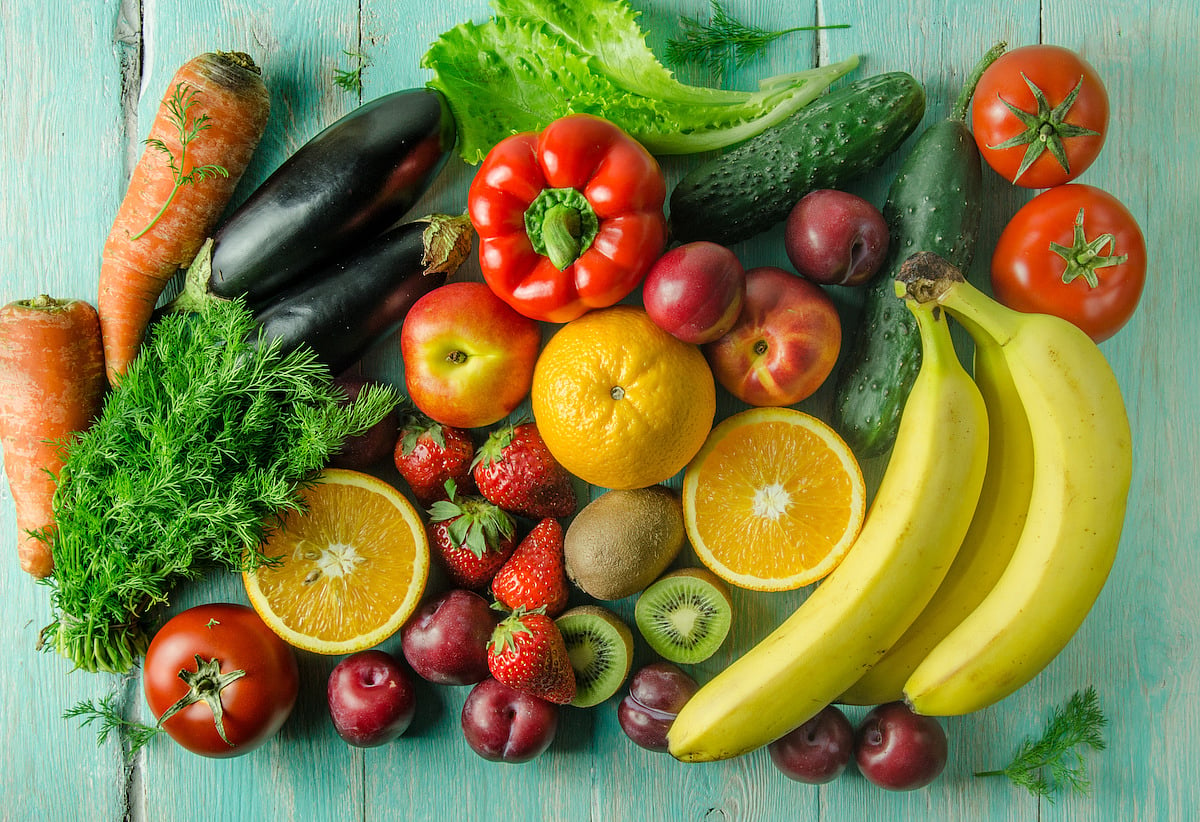Get Healthy!

- Angelina Livigni
- Posted August 12, 2024
Fruits, Vegetables Lower Your Body's Acid Levels, Boosting Health
An apple a day, along with a healthy serving of vegetables, could become a first line of treatment for hypertension, new research suggests.
Diet plays a large role in overall health, and the study confirmed that a diet high in fruits and vegetables lowers blood pressure while improving both heart and kidney health. And although most modern diets include animal products, which produce high levels of unhealthy acid in the body, fruits and vegetables can help neutralize that acid.
“It's important for us to remember that the usual diets that we eat in modern societies contain much more animal products like meats than fruits and vegetables,†said lead study author Dr. Donald Wesson, a professor of internal medicine at the University of Texas at Austin's Medical School. “So, when we eat a diet like we do in modern societies, more animal products like meat than fruits and vegetables, we have an acid-producing diet.â€
In the study, published Aug. 6 in the American Journal of Medicine, 153 patients with primary hypertension who also had very high levels of blood acid were divided into three groups: those who added 2 to 4 cups of fruits and vegetables to their daily diet; those who took sodium bicarbonate (baking soda) tablets; or those who received standard blood pressure treatment and medications. The patients were followed for five years.
What did the researchers find? Both the patients who ate more fruits and vegetables or took baking soda tablets had improved kidney health. However, only the high fruit and vegetable diet improved both kidney health and heart health.
“That's why our conclusion from the study is that diets high in fruits and vegetables should be foundational,†Wesson said. “That should be the baseline, the first thing that we do in treating individuals with high blood pressure. So, our thought is we should start with diet and then add medication as necessary.â€
Fruits such as apples, oranges, peaches and raisins were provided to patients in the study. Vegetables including carrots, cauliflower, eggplant and lettuce were also given to participants. It was found that raisins were the most effective at neutralizing acid in the body.
People who don't have access to fresh fruits and veggies should probably not turn to baking soda tablets instead, Wesson said.
“I would not suggest that you take those sodium bicarbonate or baking soda type pills on your own. But if you think that you can be benefited by taking those baking soda-like tablets, I would talk with your physician first before doing it on your own,†he advised.
Adding more fruits and vegetables may seem like a daunting task to some, so Amy Kimberlain, a nutritionist and spokesperson for the Academy of Nutrition and Dietetics offered some advice.
“I always tell patients that fruits and vegetables while they provide fiber, they also can provide flavor,†Kimberlain said. “Eat the ones they enjoy [don’t eat something you don’t like], but also experiment with different ways of preparing the fruits and vegetables. If you don’t like raw carrots, try them cooked. Like beets, if you don’t love them as is, maybe add them to a hummus and now have a flavored hummus. Experiment, get creative and keep trying!â€
Kimberlain offered some additional tips to make this transition in your diet easier:
Try a new seasonal fruit or vegetable each week.
Add veggies to your eggs (scrambled or omelet) for breakfast.
Toss fruit into your oatmeal.
Instead of having just lettuce and tomatoes for a salad, add in more vegetables to make the salad more interesting -- shredded carrots, cucumber, mushrooms, beets, etc.
Roast vegetables for the week and add them into dishes throughout the week, i.e., roasted peppers and onions.
Homemade soups and/or a stir-fry are a great way to make your meal center around veggies.
Have frozen fruits and veggies on hand (so they don’t spoil) as they’re a great way to add them to different meals and they’re always readily available.
Snack on veggies with a dip like hummus or yogurt-based dressing
Have pre-cut fruits and veggies on hand
More information
Harvard Health has more on vegetarianism.
SOURCES: Donald Wesson, MD, professor, department of internal medicine, Dell Medical School, University of Texas at Austin; Amy Kimberlain, RD, nutritionist and spokesperson, Academy of Nutrition and Dietetics; American Journal of Medicine, Aug. 6, 2024







